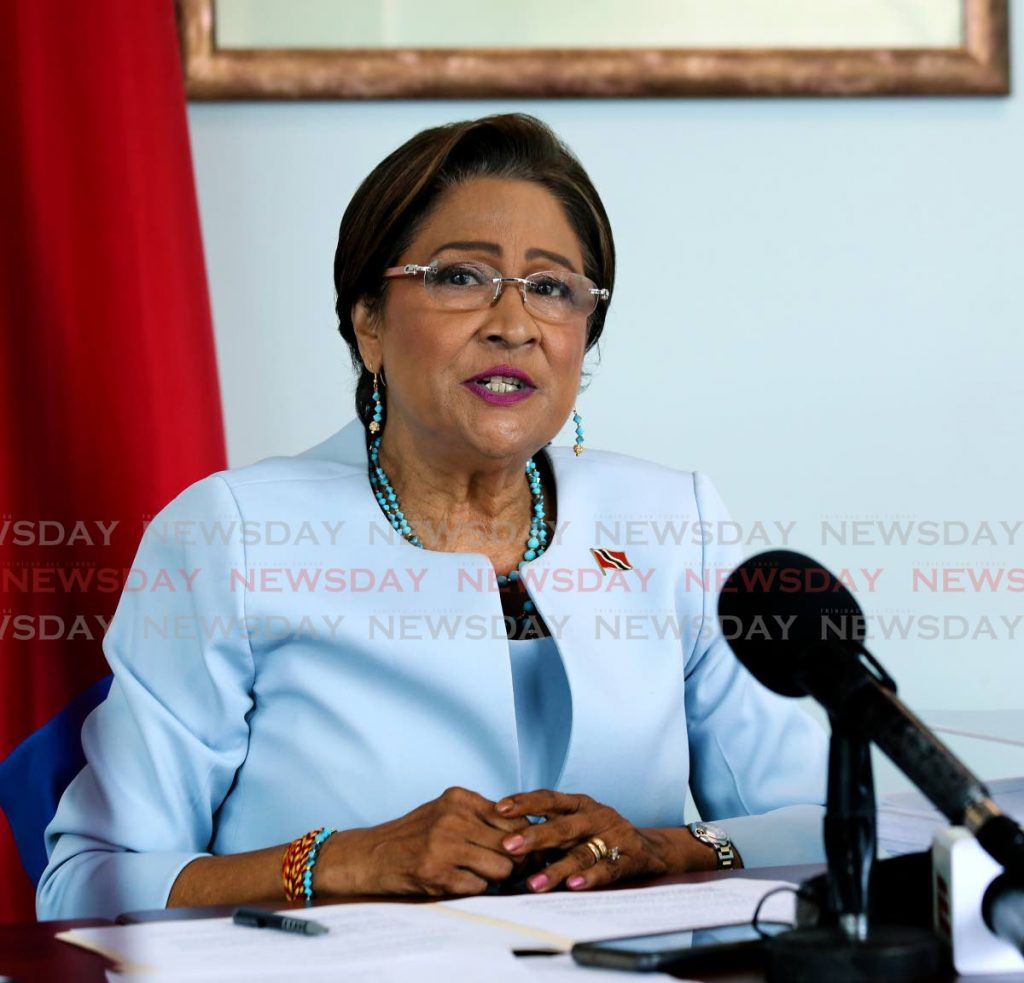Revenue Authority heading for legal challenge by opposition

HOURS before the Trinidad and Tobago Revenue Authority (TTRA) headed for debate in the Senate on Tuesday, Opposition Leader Kamla Persad-Bissessar signalled her intention to legally challenge the outcome.
Dubbing it the “Imbert Revenue Authority” Bill, Persad-Bissessar said while it may be passed by a simple majority vote, it will be stopped by the courts.
“I declare and I know it will be challenged in the courts should they (Government) pass the TTRA Bill in the Senate and bring it in the House and pass it only with their simple majority votes. It is unconstitutional and it will be struck down by the courts of TT.”
From the United National Congress (UNC) virtual platform on Monday night, Persad-Bissessar said, “Our supreme court is the guardian of our Constitution and if there ever was a bill and a law that they were seeking to put in place that is unconstitutional, it is the TTRA Bill.”
She explained what she described as its unconstitutionality as it related to interference with property and privacy rights, which are protected by sections four and five of the Constitution.
She also linked it to the property tax and the proclamation of one section of the Data Protection Act.
The TTRA seeks to replace the Board of Inland Revenue (BIR). It was first introduced in 2010 and has seen various incarnations in 2018 and 2019, when it was brought back with amendments.
Speaking on the same platform, Couva South MP Rudranath Indarsingh said the UNC is historically and fundamentally opposed to the People’s National Movement (PNM) version of the TTRA.
He said this is not just another piece of legislation but a continued assault on the Constitution, on the parliamentary process, totally undermining the democracy of the country as it seeks to reduce the vote for passage from special to simple majority.
At the opening of the second session of the twelfth Parliament last Friday, Attorney General Faris Al-Rawi said on the last occasion the bill was passed in the Senate with full support from the independent senators but died in the House due to lack of opposition support.
Persad-Bissessar said it had failed because it required a special majority vote.
“Every incarnation of this TTRA bill had a special majority, because it is well recognised you will be breaching fundamental rights in the Constitution, and therefore you had to get a special majority.”
She this is not the the first time Government has resorted to removing the special majority and replacing it with a simple majority when faced with stumbling blocks in passing and enacting legislation.
“They are removing the special-majority clause so they could pass it with only their votes in the House. That’s all well and fine, you do that with some bills you could pass with a simple majority, but when rights are affected, our Constitution has mandated that you must deal with the special-majority clause. You must have those inserted.”
She said the BIR is manned by public officers and a golden thread running through the jurisprudence of countries based on the Westminster style of governance is that public servants must be insulated from the interference of the directorship, the executive of the party in power.
She gave an example of one case, Thomas Endell versus the Attorney General, which said the service commissions are there to protect public servants so they can independently and impartially carry out their duties on behalf of citizens.
Should the TTRA Bill in its present form be passed and assented to, she said, there will be no independence if the board is appointed by the whims and fancy of the Finance Minister.
“How can you have a body with such great powers accessing sensitive information and you have a board that is appointed by the minister?” she asked.
“The minister is a politician. A politician should not interfere with the appointment of the board.”

Comments
"Revenue Authority heading for legal challenge by opposition"